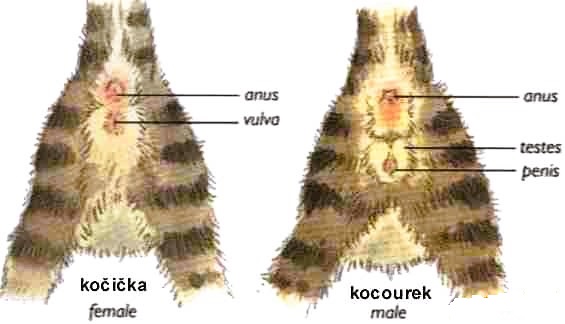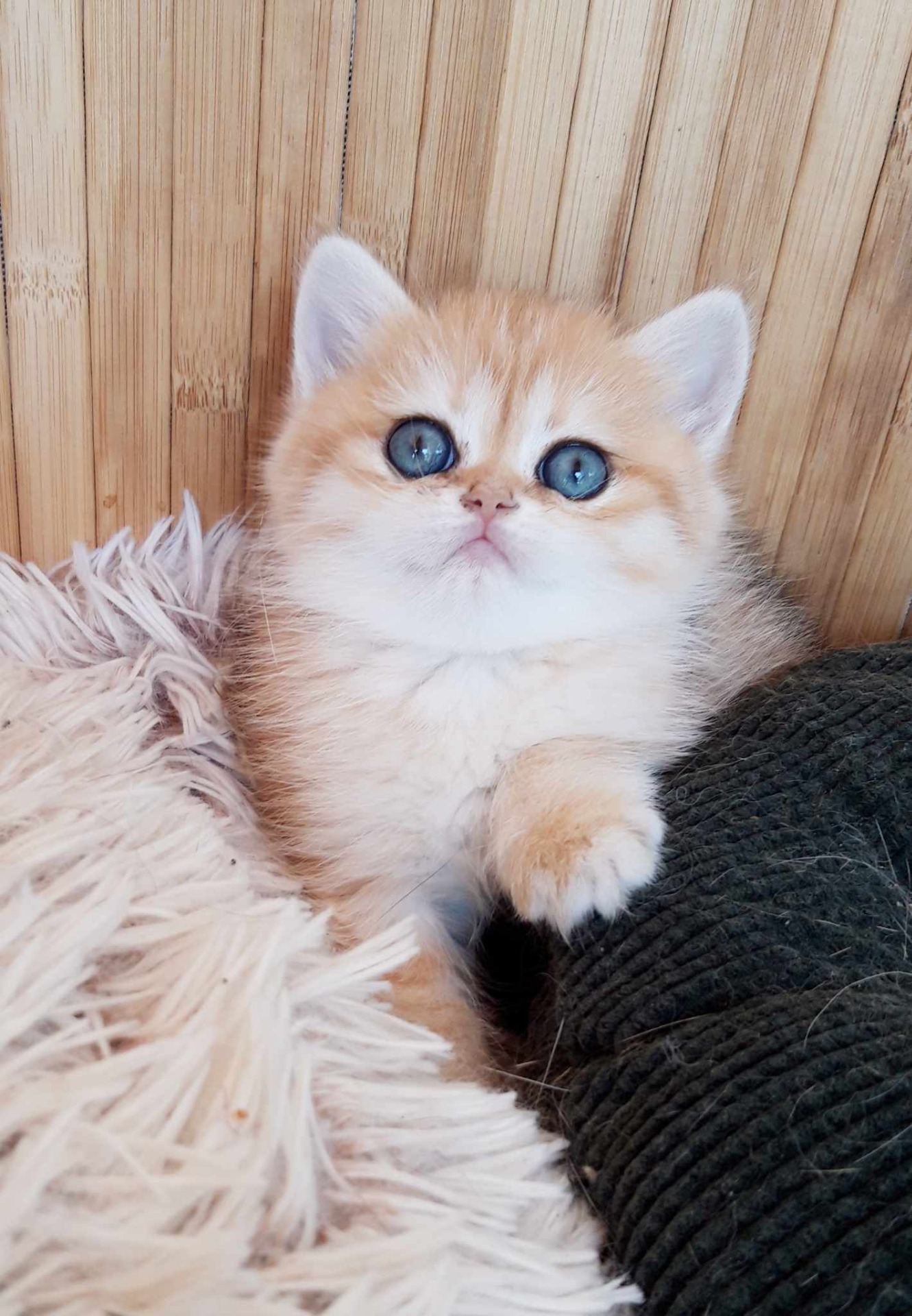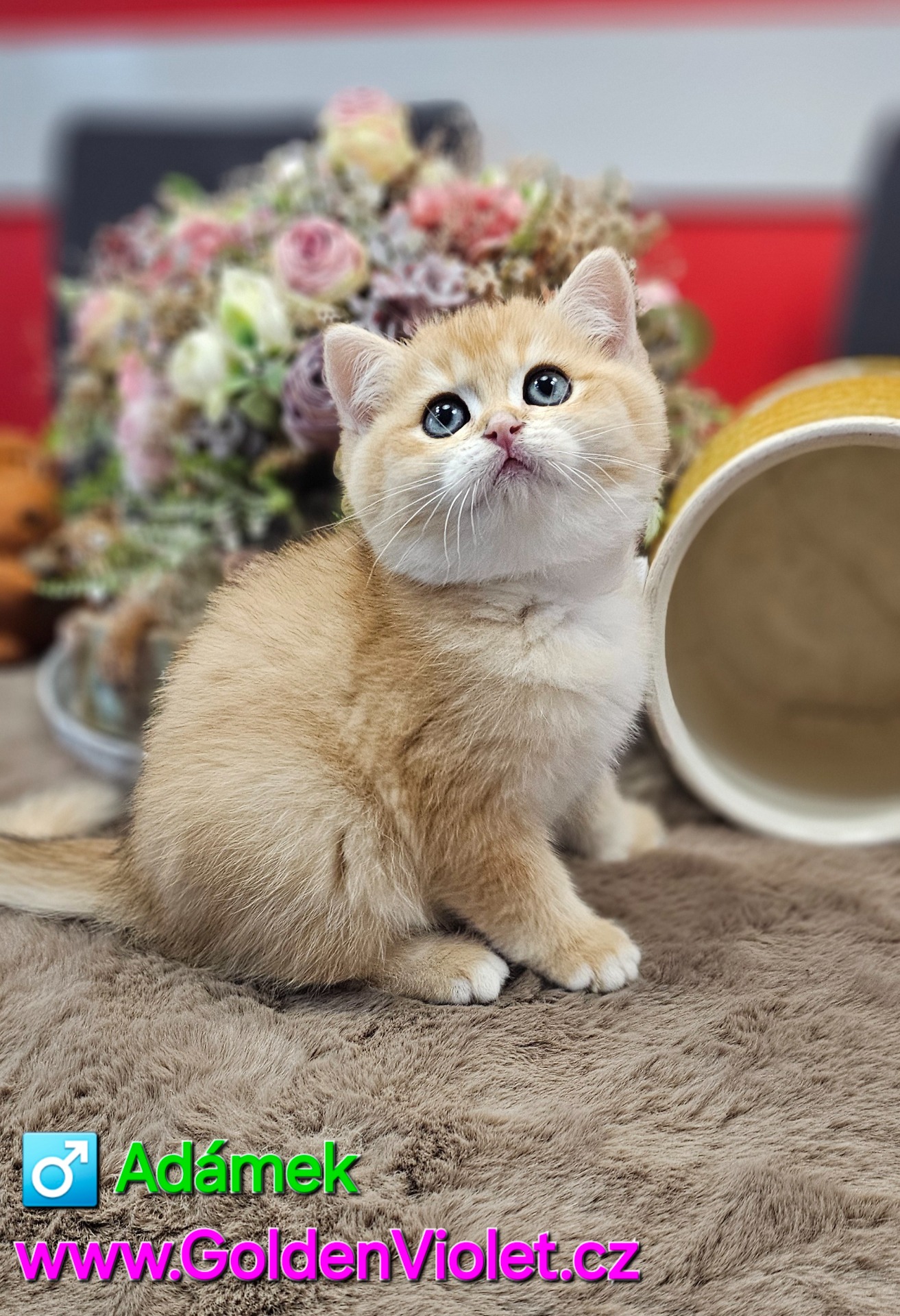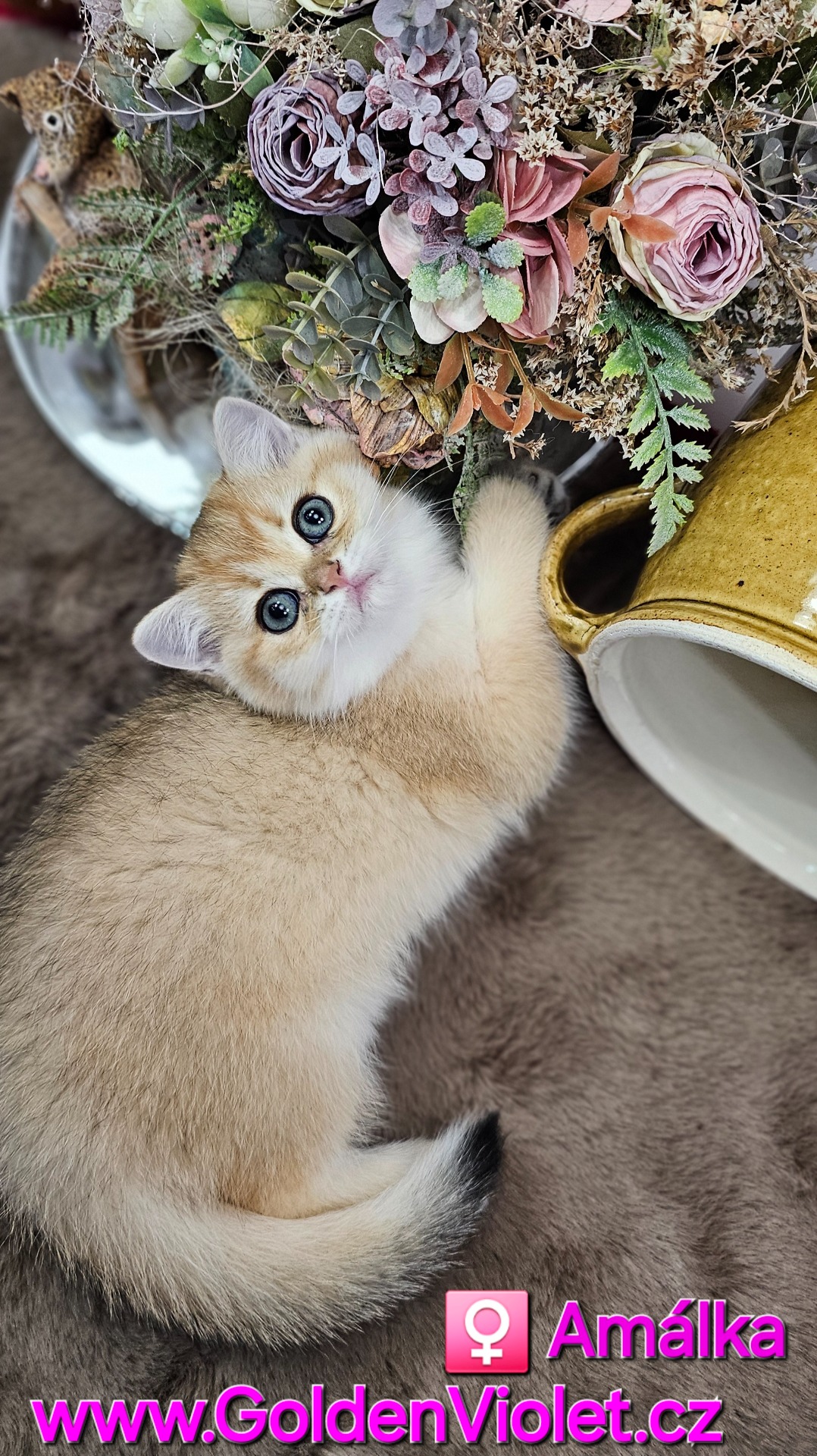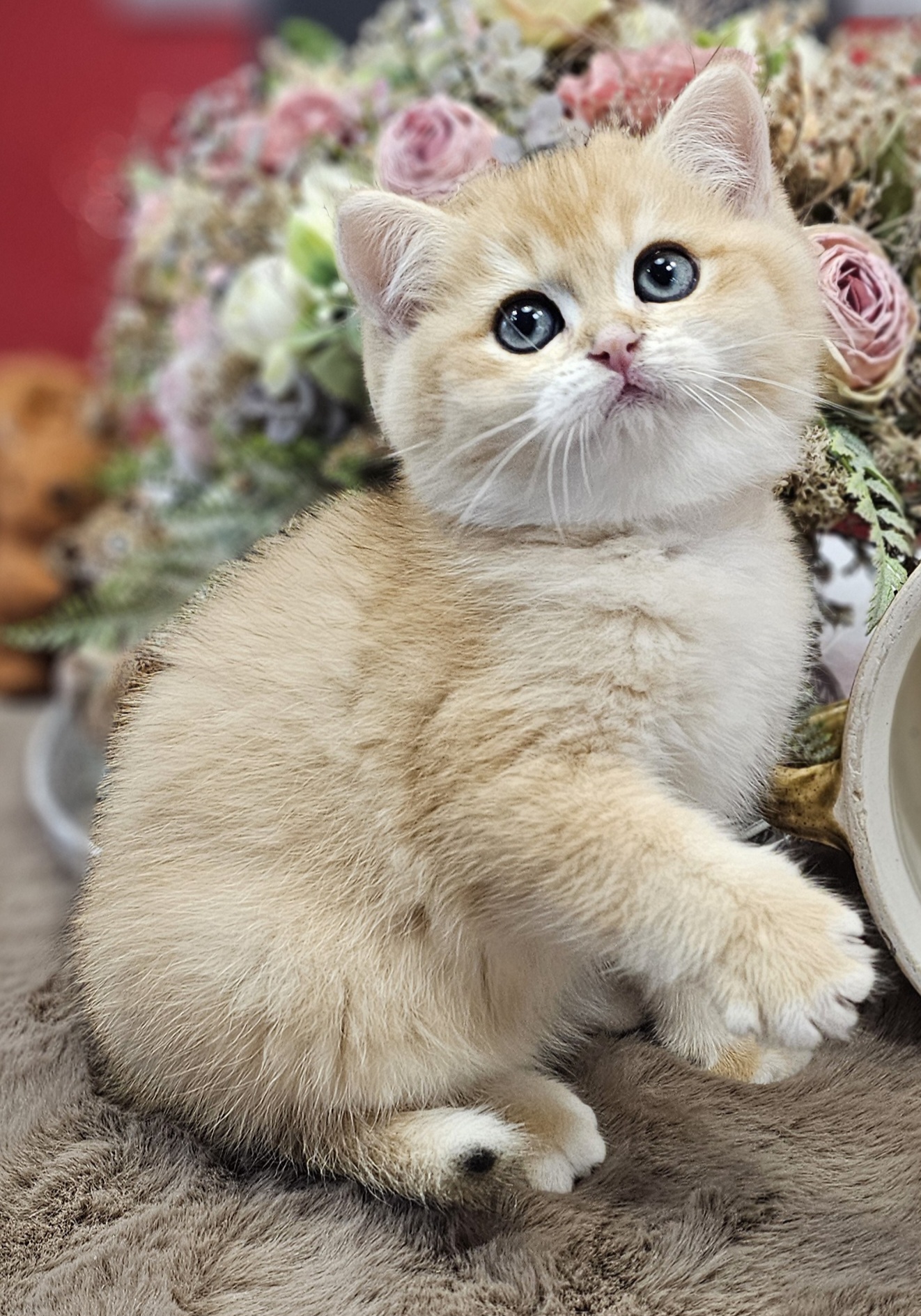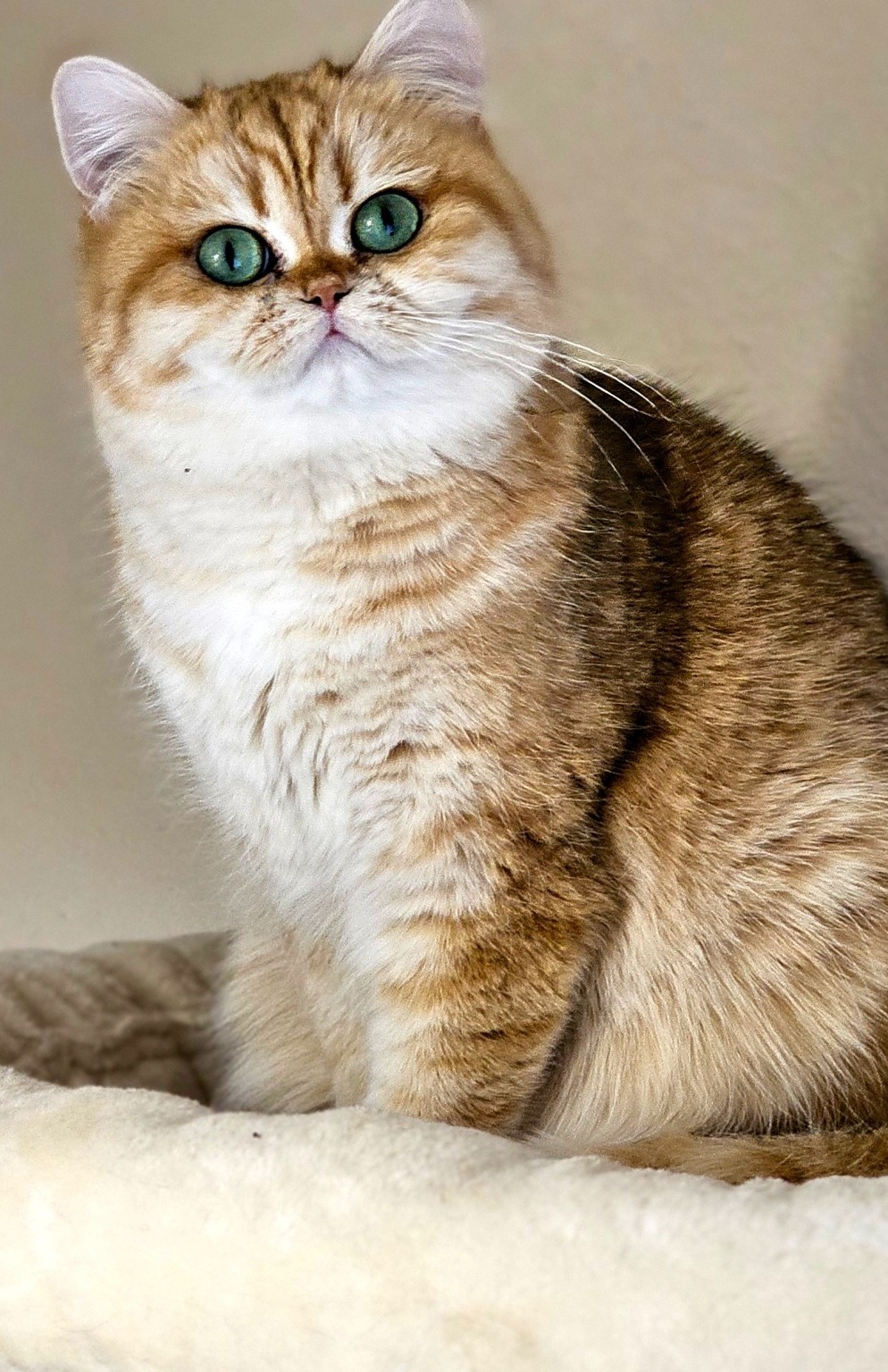
Kennel of British cats GoldenViolet
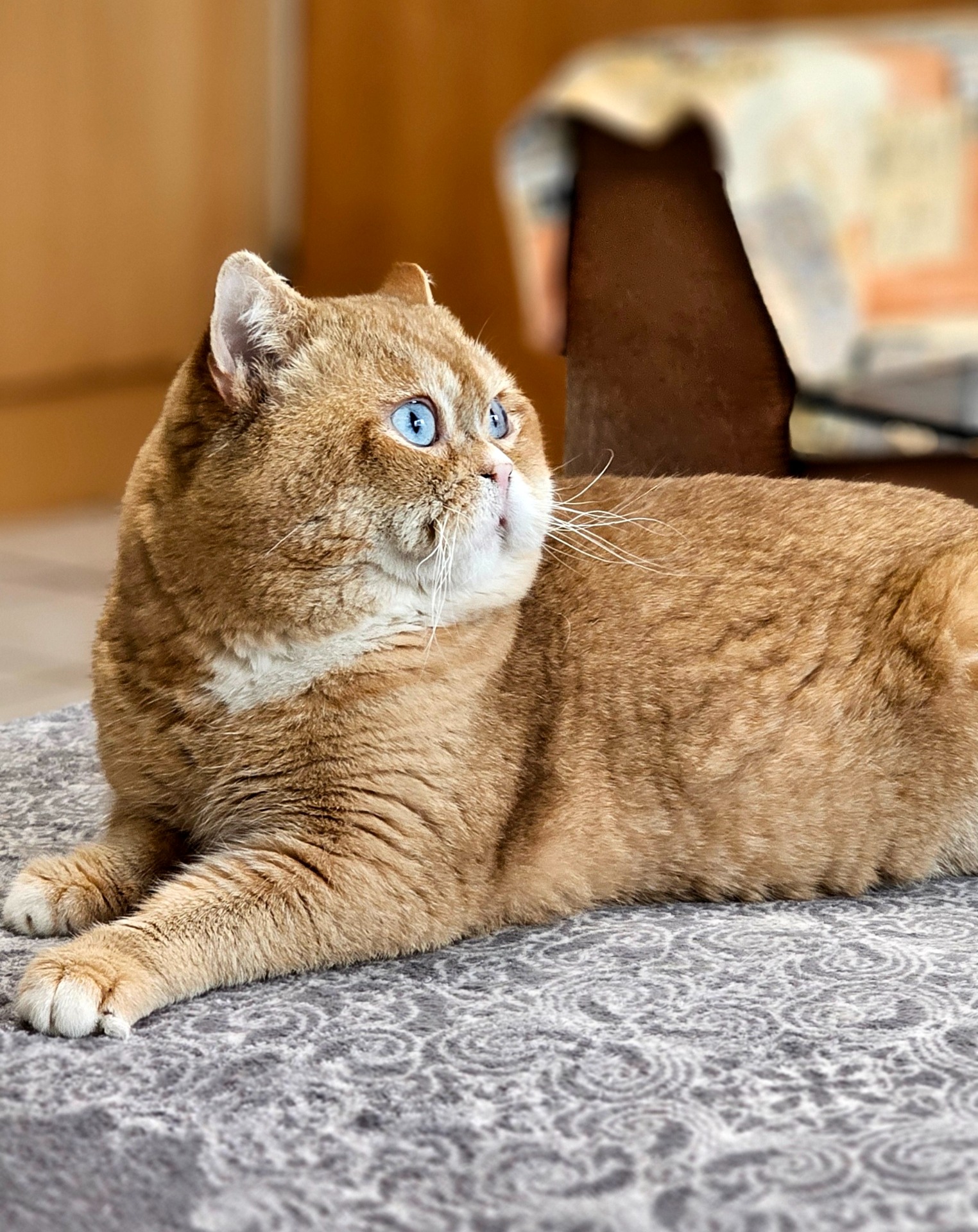
Garfield, BSH dy 11 61 DBE
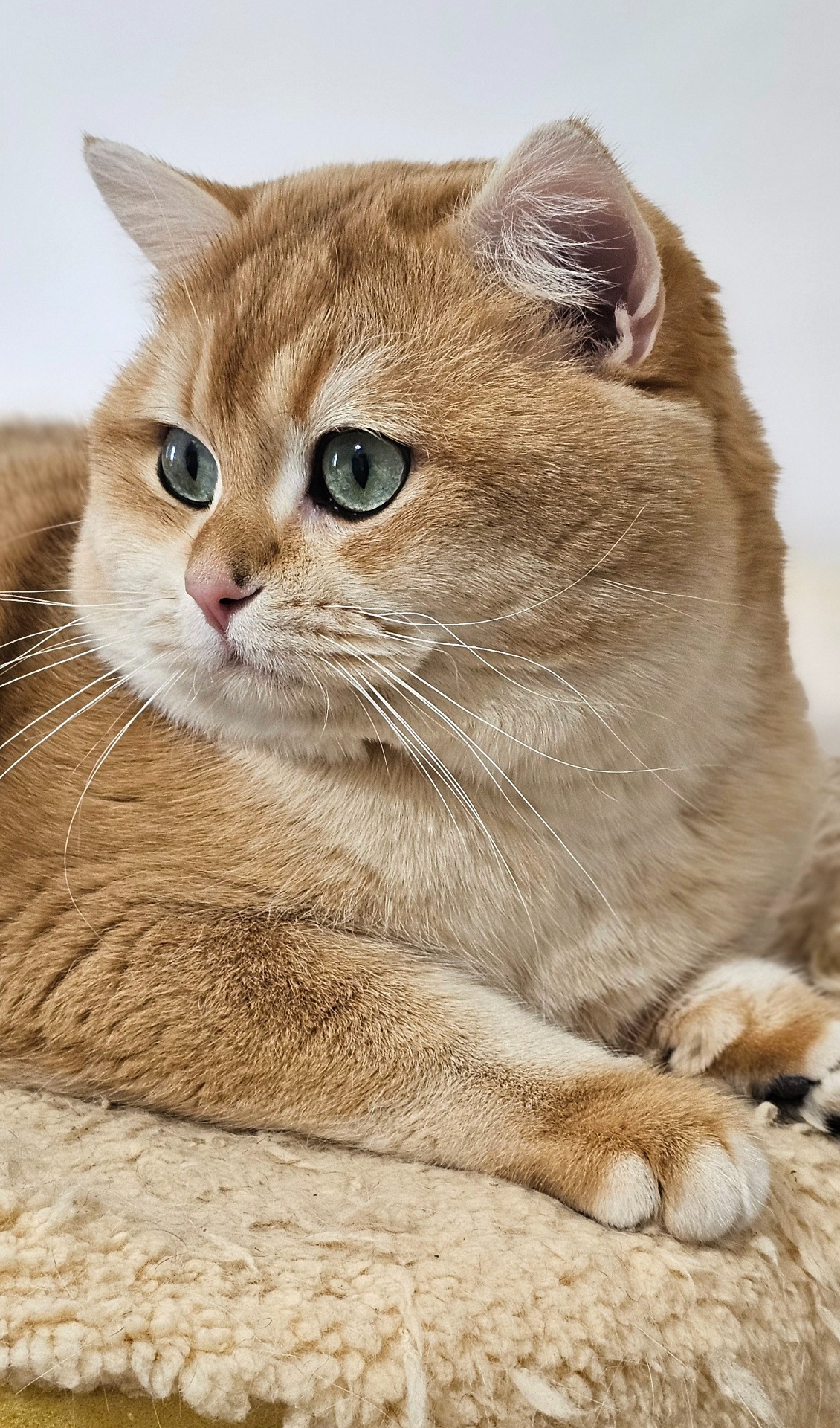
Karrat Zojka, BSH ny 12
Welcome to the website of a small family breeding station of British cats, founded in September 2023 by the international organization TICA. Regular vaccinations, deworming, testing for: FeLV (feline leukemia virus), FIV (feline immunodeficiency virus - feline AIDS), PKD (polycystic kidney disease), HCM (hypertrophic cardiomyopathy) are a matter of course in my breeding. My kennel is closed, I do not offer a cat for external shelter, nor do the cats go to other cats.
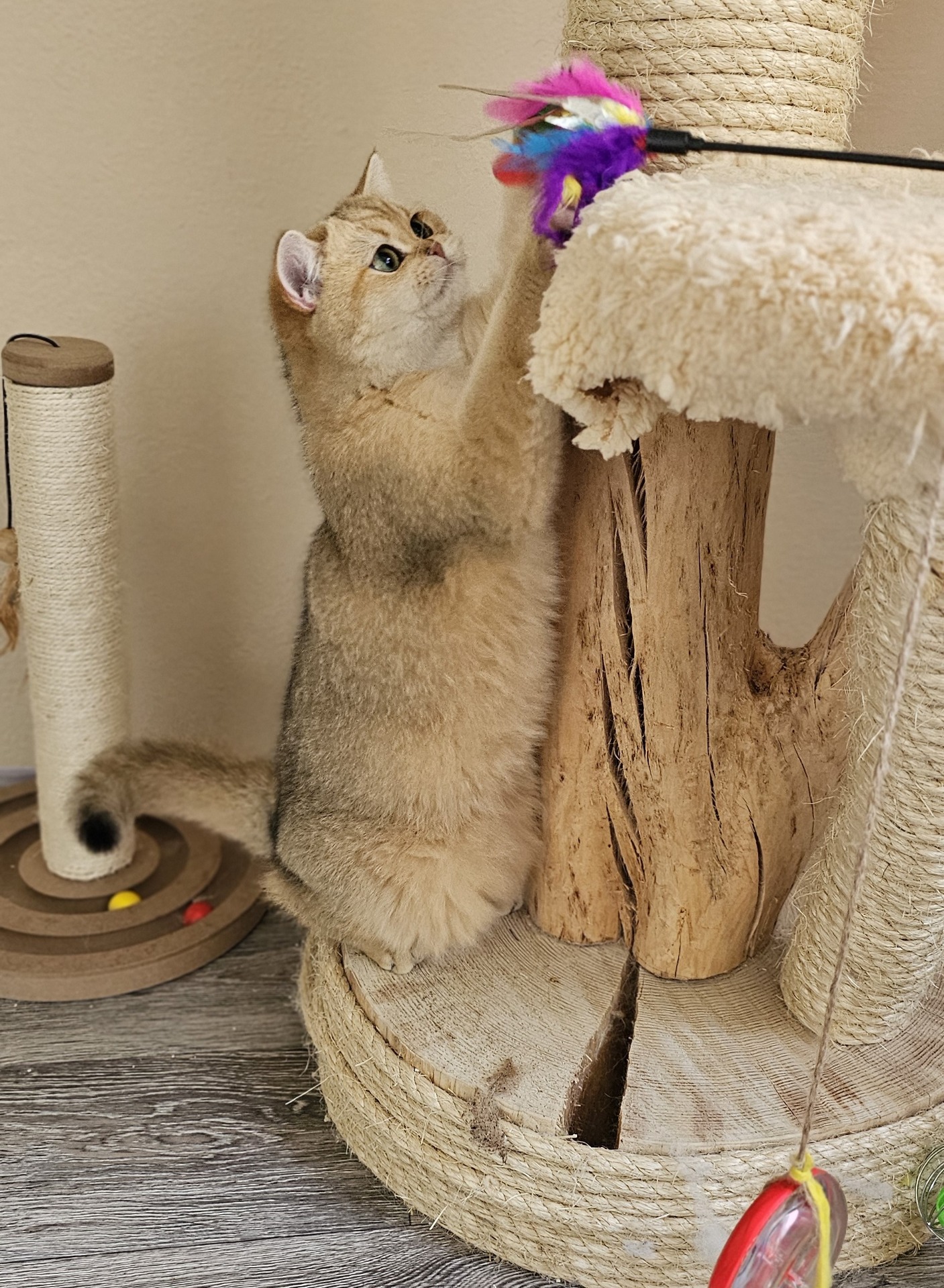
Jozia Zojka*PL, BRI ny 11
Necessary equipment:
Among the basic equipment for your new kitten that needs to be prepared and placed before its arrival are:
- food and water bowls (you can also buy cat fountains)
- cat toilet with scoop and litter
- beds
- cat tree, scratching post
- toys
- pickup
- fur brush
- feed
Cat food:
Cat food should primarily be:
- wet - the liquid content in the feed should be at least 60-65% (various pockets, preserves, pasties)
- animal proteins - should contain proteins (proteins) of animal origin, their content should be at least 50% (these are proteins coming from e.g. chicken, lamb, turkey, rabbit, beef, fish...)
- meat - a source of protein, vitamins, minerals and amino acids (for cats, meat is a natural food, I give it daily)
- sardines - they are great nutrition for bones and joints, support for a healthy heart and brain
- fatty cottage cheese - source of fat, calcium, supports intestinal activity, strengthens immunity (I give a spoonful of cottage cheese twice a week)
- Carbohydrates - cat food should not contain any carbohydrates!
basic assistants:
Taurine:
An essential amino acid that the cat cannot make on its own and should be part of the daily food. It needs more taurine than any other animal. Without reaching the necessary level of taurine, numerous disorders and health problems appear in the cat. Taurine is mainly found in animal viscera - beef liver, heart, poultry stomachs or poultry liver. It can also be found in chicken meat or dark turkey meat. Taurine deficiency in cats can cause:
- Loss of vision - with a lack of taurine, the retina dries out and vision disorders occur due to the degeneration of light-sensitive cells in the retina
- Hearing loss - taurine plays an important role in maintaining the proper function of the hearing apparatus
- Heart muscle disorders - heart failure or heart muscle disease
- Weakening of the immune system - increased risk of infections and diseases
- Reproduction disorders
- Retarded growth, birth defects in kittens
Probiotics:
- they improve the functioning of the intestinal microflora
- they support immunity and proper digestion
- help the body produce vitamins (mainly vitamin K and vitamins ( B1, B3, B6, B12 )
Fish oil:
- a source of Omega 3, EPA and DHA fatty acids
- supports metabolism
- has anti-inflammatory effects
- support for the brain and the retina of the eye
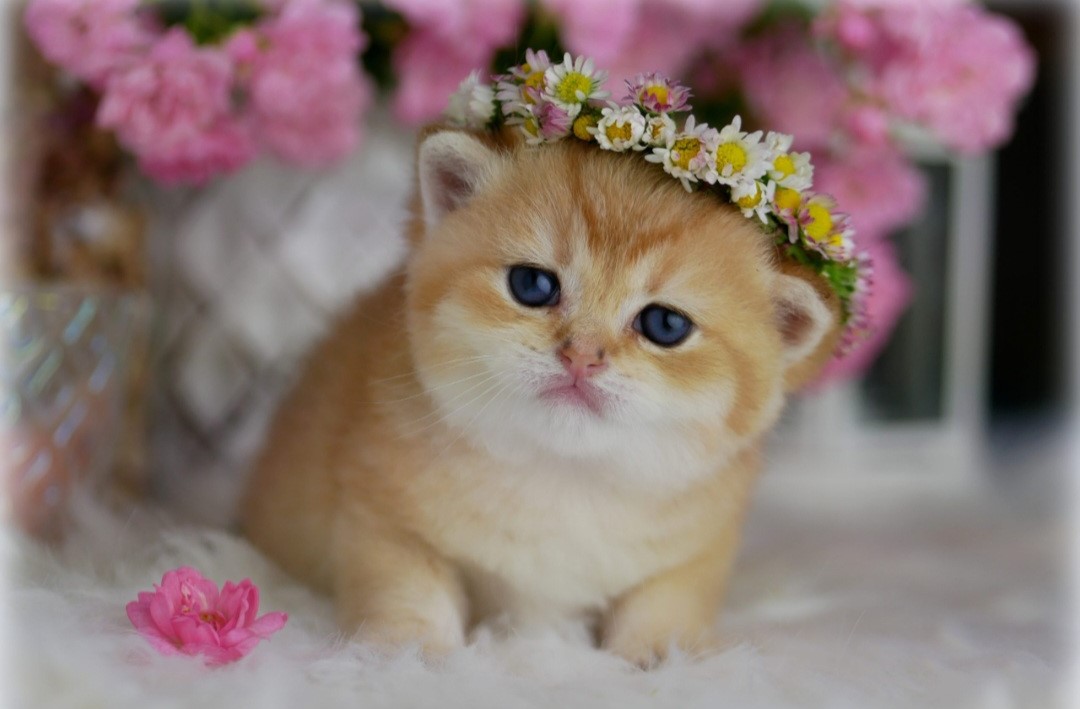
Jozia Zojka*PL, BRI ny 11
Welcome to the family
- The arrival of the kitten is an important event, so plan the pick-up on a day that you can spend the whole time with the kitten, whether it's a weekend or a day off.
- Your kitten has just left the safety of its mother and siblings and is experiencing a lot of new sensations, sounds and smells, it is scared, so try to keep your emotions under control.
- First impressions are crucial and will affect your relationship in the long run.
- In the first days, be prepared that the kitten will most likely wail, this is normal because it is scared. Choose a quiet room for your kitten, this way he will gradually get used to his new surroundings and the smells of his new home.
- Be quiet around him and show him your love.
- Encourage kitty play to strengthen your bond with a variety of interactive cat toys, feathered flutters, rustling balls, balls...the choice is yours.
- Don't forget that cats like to scratch so have a scratching post or cat tree ready, there are also various scratching mats available
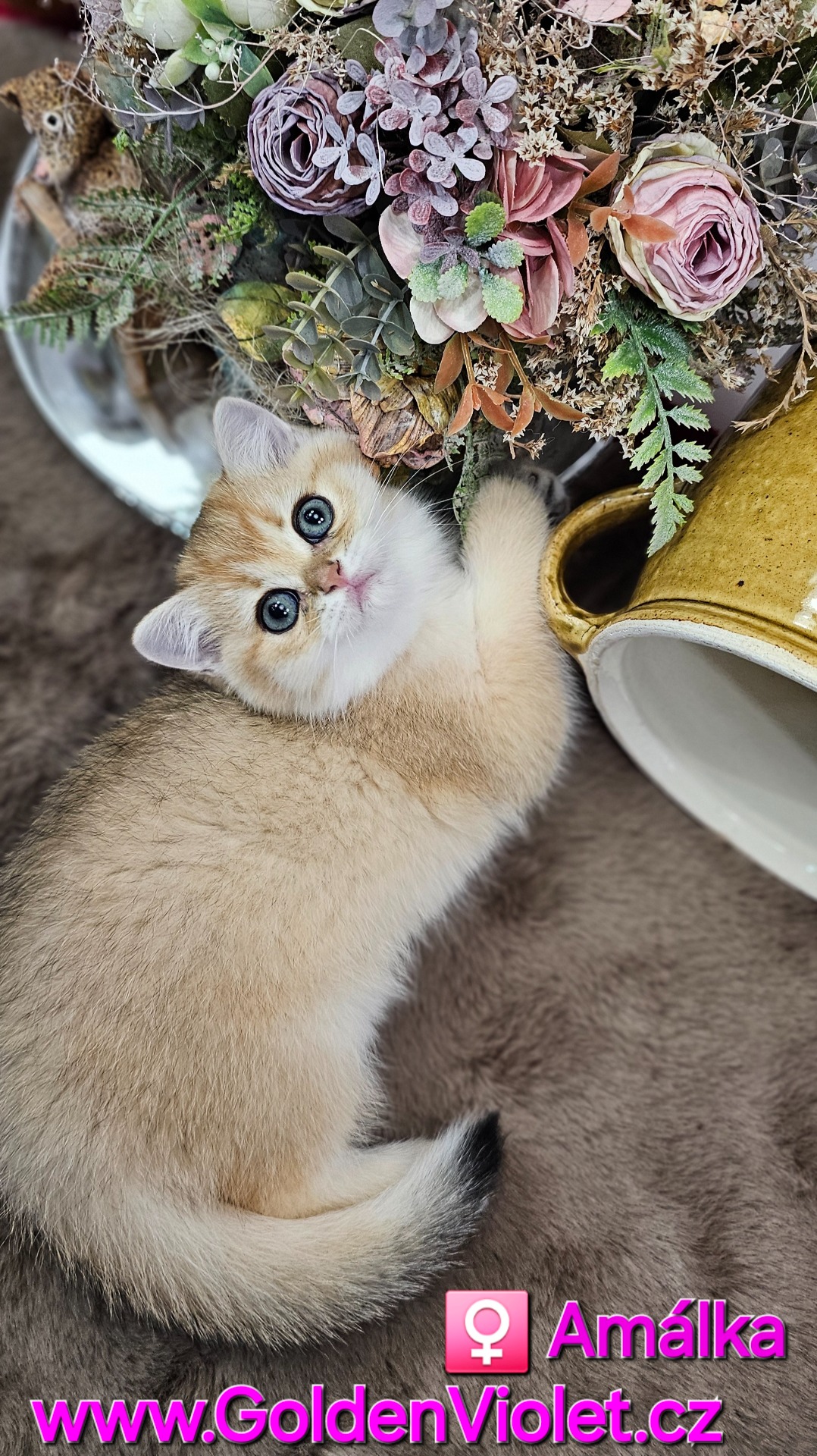
A cat or a boy?
Each kitten is unique and its characteristics are not determined by gender. Even if the kittens are from the same litter, each one is different. Everyone likes different food, a different toy, has a different temperament and their own head. The nature of the kitten is determined genetically, the upbringing of the mother of the kitten and the environment in which it grows up also play a role.
Not always, but as a rule, cats tend to be more active and tomboys are more lazy.
